Trade
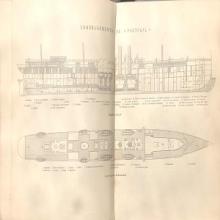
Short Teaching Module: Connecting the French Empire
For a long time, historians tended to study colonial empires of the 19th and 20th centuries one colony at a time, or through the relationship of one colony to its metropole.
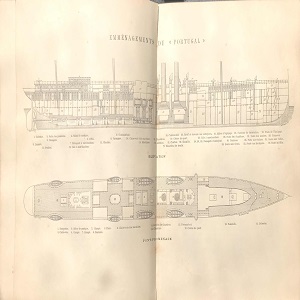
Ship Plan of a Late-19th Century Steamship
This ship plan from the late-19th century offers a partial view of spatial arrangements within a Messageries steamship.

Shipping Company Route Map from 1889
This route-map of the Messageries Maritimes shipping company displays the main routes connecting metropolitan France to its empire in the Indo-Pacific. While the map dates to 1889, these routes retained their basic structure through the 1950s.

Business contract between Richard P. Waters and his Omani-Zanzibari trading partner, Esau bin Abdul Rahman
This contract represents how business was typically transacted in Zanzibar and throughout the Omani Empire.
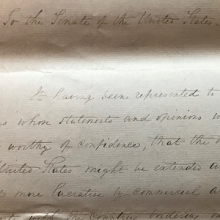
Short Teaching Unit: The Omani Empire and the Center of the Emerging Global Economy, 1500-1850
This essay pushes back against European-dominated narratives of world history to suggest that the Omani Empire was a crucial space for the emergence of our present-day system of global capitalism.
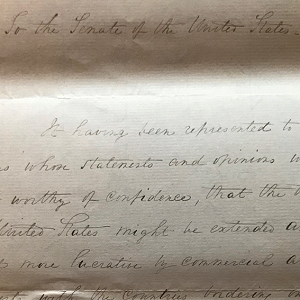
A letter from U.S. President Andrew Jackson to the Senate Dated Washington, May 30, 1834
A letter from President Andrew Jackson to the Senate where the President discusses the possibility of extending US trade. Jackson was particularly interested in the potential trade connections with areas around the Indian Ocean.

List of Foreign Arrivals in the Port of Zanzibar from the 16th September 1832 to 26th May 1835
This is an ostensibly mundane document that contains a tremendous amount of information for interpreting the global dynamics of this period of history, all while peering out into the world from the tiny island of Zanzibar.
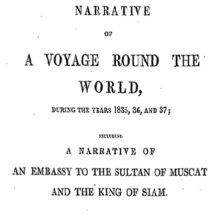
Short Teaching Module: Global Microhistory and the Nineteenth-Century Omani Empire
In their primer essay, Jessica Hanser and Adam Clulow note how scholars of global microhistory explore relationships between macro and micro, deep structures and contingency, and big state actors and minor players.
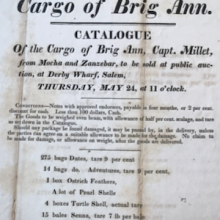
Short Teaching Module: Nineteenth-Century American Trade on Zanzibar
Although American merchants often fade from historical narratives after the eighteenth century, they remained influential actors in the United States and abroad.

Outward Cargo Manifest of the Rowena, 1841
Cargo manifests and other shipping records offer a tangible glimpse into expansive commercial networks, reminding observers of the physical goods underwriting long distance trade.